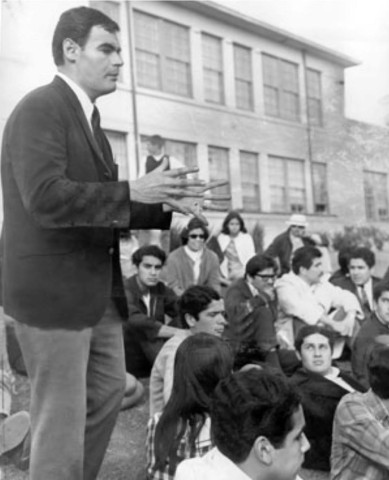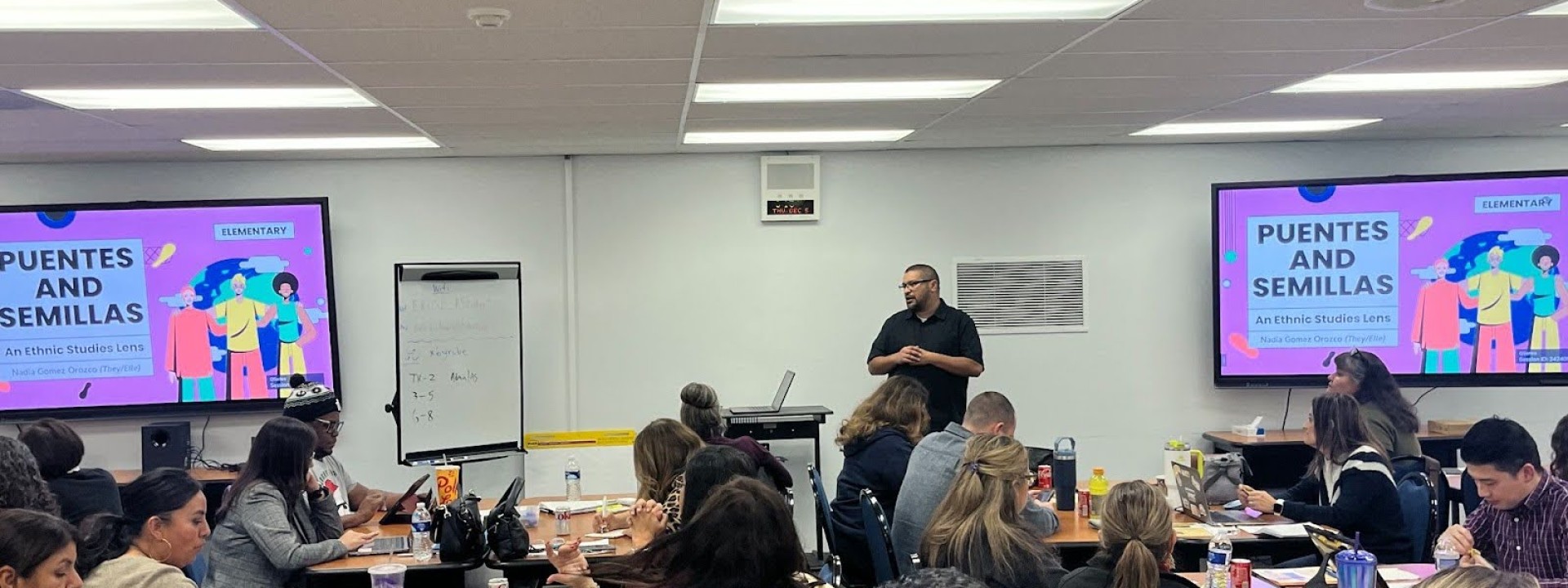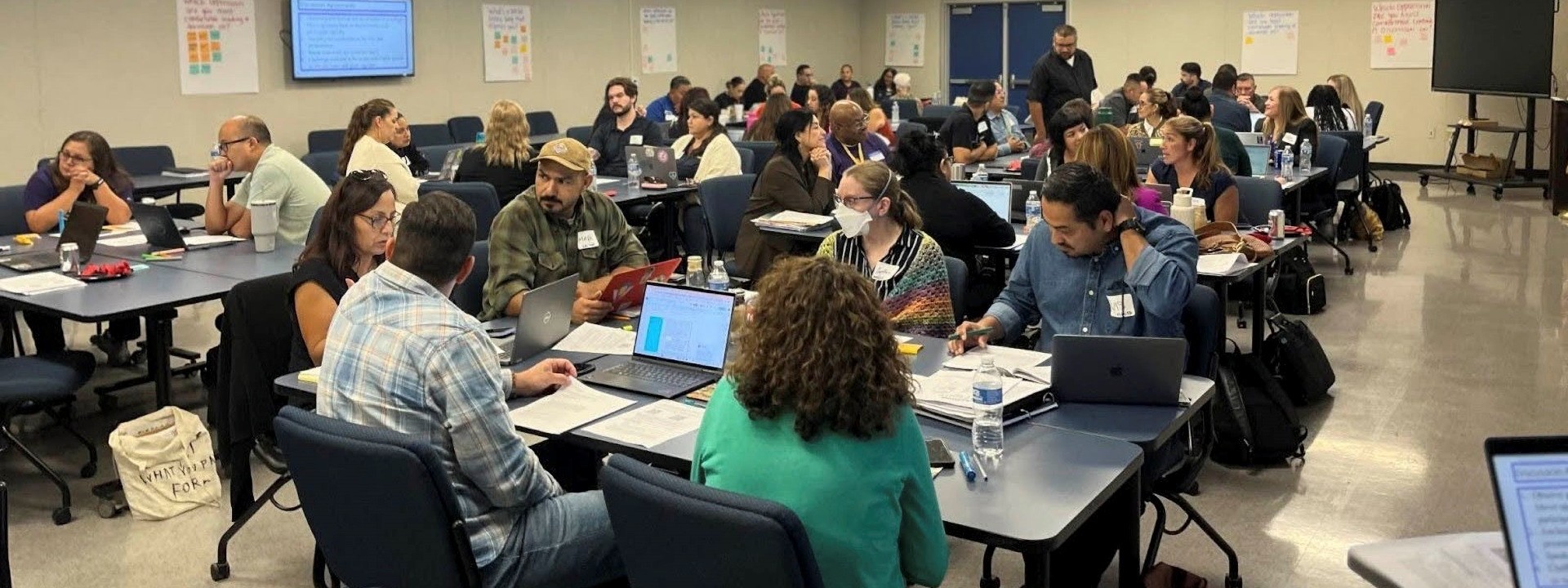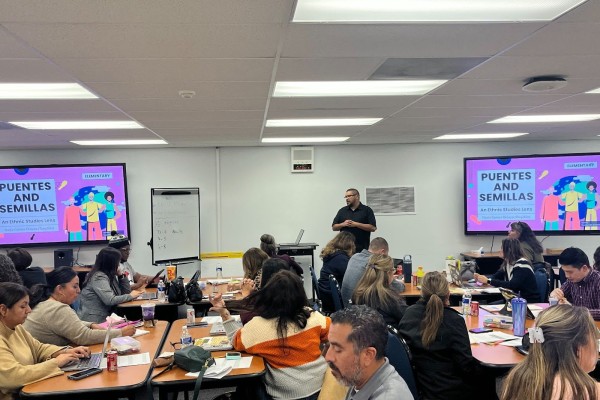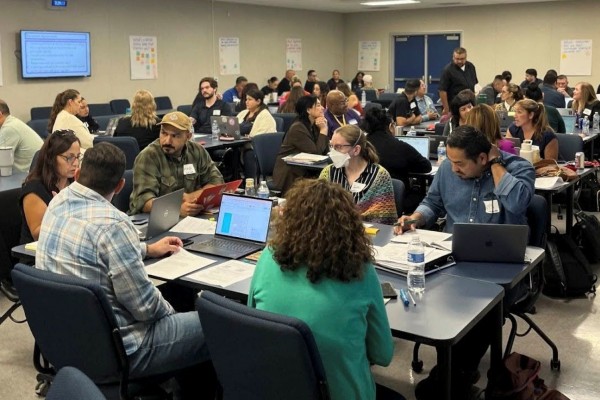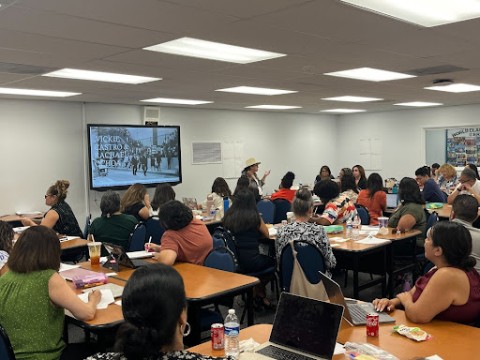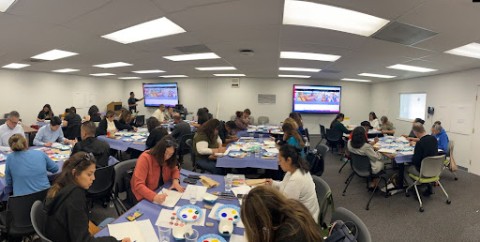About Sal Castro
Sal Castro was a distinguished teacher, mentor, advocate, and community organizer, remembered for his role in the 1968 East Los Angeles Blowouts – a series of historic protests led by Mexican American high school and college students to demand an equitable education. Throughout his career, Sal Castro inspired countless students to succeed in college and serve their community.
Modeled after Sal Castro’s storied Chicano Youth Leadership Conference, the Sal Castro Academy for Urban Teacher Leaders will inspire a new generation of teacher-activists through a transformative and empowering curriculum.
Program Description
In the legacy of distinguished educator and alumnus Sal Castro, the Academy for Urban Teacher Leaders inspires and builds the capacity of Ethnic Studies teaching teams to develop sustainable and authentic programs and to educate the next generation of community leaders.
Participants in the Academy will learn alongside other educators in peer districts in a year long professional development course. The overarching aim is to support sustainable and humanizing education approaches, through a dynamic and empowering program that balances the needs of our district partners with our vision of leveraging our resources and networks to develop educator leaders to train student leaders.
We plan to build on the momentum and learning of last year’s Academy by continuing our work with district partners to develop a coherent TK-12 pathway of Ethnic Studies learning. We stay true to the vision of Sal Castro - and successive generations who carry on this work - to train student leaders through community-affirming and action-inspiring curricula and pedagogy.
A hallmark of our program is building a network of educators through cross-district collaboration, resource sharing, and problem-solving. In the first two years of the program, we partnered with six school districts (Bellflower, El Rancho, Hacienda La Puente, Norwalk-La Mirada, Rowland, and Whittier Union) and collaborated with over 150 educators.
Next year, we plan to offer two tracks (for both TK-8 and 9-12 educators) that are geared towards the foundational and more advanced needs of the participants. Our lineup of presenters will combine the experience of Cal State LA and other local professors and K-12 Ethnic Studies educators to balance scholarly research with practitioner expertise.
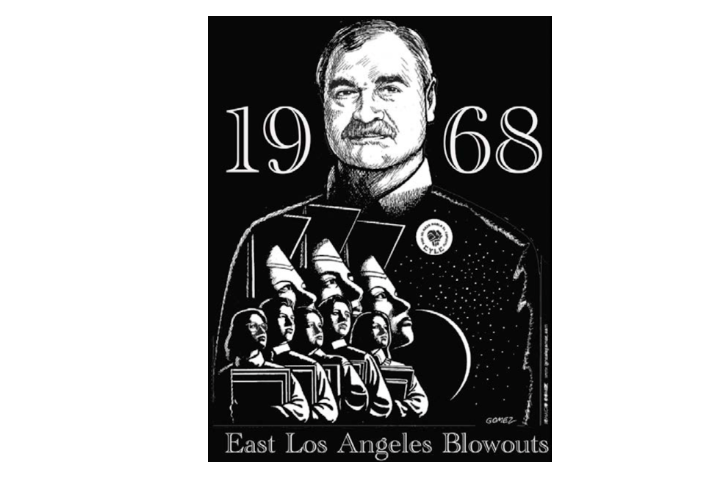
To that end, The curriculum of the Academy will encompass a few key areas. These are general areas of focus, and the depth of exploration will be tailored, as much as possible, to meet the specific needs and questions of inquiry of participants, as well as the expertise of the presenters. We will focus on:
- Building the capacity of your Ethnic Studies teaching team
- Advocacy and leadership in the current policy and political context
- Civic and community engagement and youth participatory action research
- Overview of Ethnic Studies pedagogies and current research in the discipline
Tracks
Track One: Foundations |
|---|
| Exploring the foundations of Ethnic Studies |
| Grounding the work in the history, legacy and inspiration of the 1968 Blowouts and its leaders |
| Understanding and utilizing Ethnic Studies Pedagogy |
| Developing a TK-12 Pathway with Guiding Principles |
| Learning tools to develop age TK-8 lessons grounded in ES principles and connected to core standards |
| Engaging in self-reflection rooted in social identities and intersectionality |
| Expanding network of educators from different districts to strengthen one’s community |
Track Two: Advanced |
|---|
| Continuing the learning of emphasized in Track One, as needed or with a deeper exploration of a topic |
| Developing a TK-12 Pathway with Guiding Principles, as well as visioning new courses in multiple disciplines |
| Developing culturally responsive leadership skills |
| Establishing or enhancing Civic Engagement and Youth Participatory Action Research (YPAR) projects |
| Building momentum and mentorship capacity for new/future teachers of ES class |
| Strengthening one’s Ethnic Studies practice, courses, and pedagogical skills |
| Expanding the network of educators from different districts to strengthen one’s community |
Program Benefits/Goals
- Join a community of transformative urban educators oriented toward social activism and advocacy
- Leverage the resources and network of local universities and districts to support your programs
- Learn alongside colleagues and like-minded educators to develop your knowledge and expertise and proactively address a problem of practice
- Develop lesson plans, course outlines, and interdisciplinary approaches for your Ethnic Studies Program
- Develop and engage in models for critical, anti-racist professional development
- Examine the legacy of Sal Castro and the Women of the 1968 Walkouts and the relevance of their work for empowering student leaders
- Identify advocacy strategies for equity and justice within the education system
- Analyze the transformative potential of education programs through Ethnic Studies and Community and Civic-Based Engagement
- Engage in critical self-reflection and social identity development
- Develop a common language, vision and approach to Ethnic Studies at all levels of your district
Deliverables
Team planning time will be factored into each session, yet the final deliverables will depend on the goals set by your team and your subsequent work to reach those goals. For example, in last year’s academy, one district created three new Ethnic Studies courses with the help of our programming. Below, we have listed examples of deliverables we envision could be developed through participating in the Academy:
- Create lessons/courses that center local history or expand Ethnic Studies to a variety of disciplines
- Centralize resources for educators to share across the district
- Deliver lessons in the Winter or Spring and develop a peer observation and feedback process
- Grow your support network within and outside your school and district
- Create a common vision/language across your district about the purpose and benefits of Ethnic Studies
- Train and mentor teachers new to the concepts and pedagogies of Ethnic Studies
- Practice public speaking and advocacy skills
- Develop implementable Civic Engagement and/or Youth Participatory Action Research (YPAR) projects (Secondary Focus)
The location of next year’s academies are two be determined. We plan to follow the same plan as last year by holding 8-9 separate sessions at a host district. Sessions will most likely run on Thursday afternoon, once a month , for 3 hours. Lunch will be provided and parking is available. Exact dates and times TBD.
The course is intended for “teaching teams” (classroom educators, counselors, TOSAs, administration at district and site levels, etc.) who are involved in the development and support of their district’s Ethnic Studies program and/or the development of student leaders committed to civic and community engagement and activism. In the spirit of building capacity and community, we encourage districts and schools to send a team.
The suggested registration deadline is June 15, 2025, yet we will accept registrations on a rolling basis after this deadline until the cohort is filled. The estimated participation fee is $1000 per person. We understand these are uncertain times in regards to education funding; we are interested in your partnership and are willing to discuss how to make this work for your district.
For more information about the academy and the registration process, contact Jason Kim-Seda, Program Coordinator, at [email protected].
Latest News
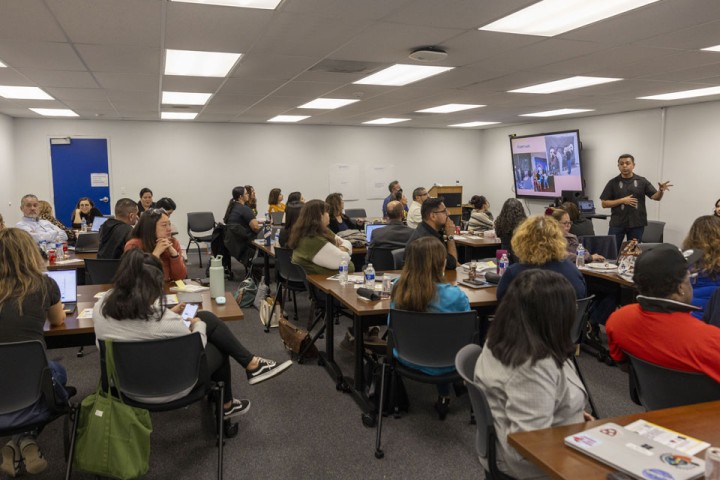
Sal Castro Academy encourages collaboration in training educators to be student-centered advocates
"In its third year of existence, the Sal Castro Academy for Urban Teacher Leaders has expanded to include 128 participants from five Los Angeles area school districts. The College of Education program trains teachers and other educators to be student-centered advocates in a year-long program that encourages them to collaborate and learn from each other."
Contact information
For more information about the academy and to register, you can contact the College of Education at (323) 343-4300, or email [email protected].
